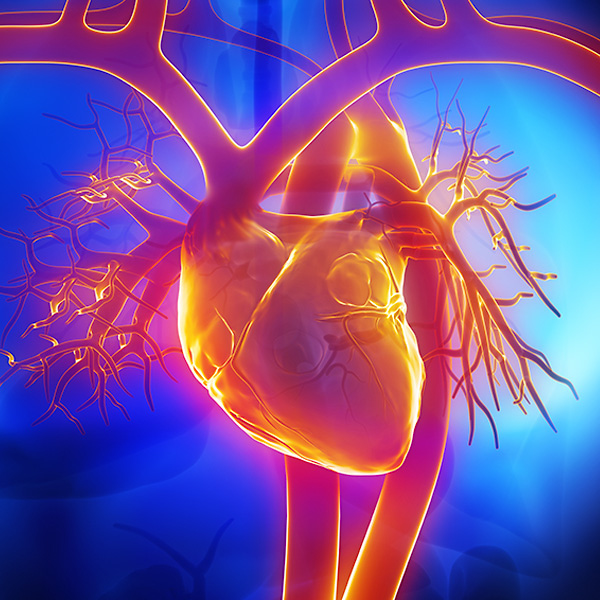Ischemic Cardiomyopathy
Overview and Facts about Ischemic Cardiomyopathy
Ischemic cardiomyopathy is a heart condition that develops after a heart attack or the development of coronary artery disease. Those who have ischemic cardiomyopathy have a weakened heart muscle, limiting its ability to properly pump blood throughout the body. In time, this condition leads to heart failure.
Treatment of ischemic cardiomyopathy often depends on how much heart damage has already occurred. Your doctor may work to slow the progression of heart failure and improve your cardiovascular health.
Signs and Symptoms of Ischemic Cardiomyopathy
Like many heart conditions, the early stages of ischemic cardiomyopathy are often symptom-free. However, once your blood flow becomes restricted, you may experience a range of ischemic cardiomyopathy symptoms, including:
- Chest pain or pressure (angina)
- Cough or chest congestion
- Dizziness or lightheadedness
- Extreme fatigue
- Heart palpitations
- Shortness of breath
- Swelling in the legs and feet
- Swelling in the abdomen
- Weight gain
Causes and Risk Factors of Ischemic Cardiomyopathy
In almost all cases, ischemic cardiomyopathy is caused by coronary artery disease or a heart attack. Risk factors for this have been identified and include the following:
- Family history of coronary artery disease
- High blood pressure
- High cholesterol
- Obesity
- Diabetes
- End-stage kidney disease
- Sedentary lifestyle
- Smoking tobacco
- Alcohol or drug abuse
Although men are more likely to develop ischemic cardiomyopathy, women face an increased risk after menopause.
Tests and Diagnosis of Ischemic Cardiomyopathy
To confirm ischemic cardiomyopathy, a cardiologist will perform a physical examination and take a full medical history. The cardiologist may also order a variety of tests and procedures, including:
- Blood tests
- X-rays
- CT scan
- MRI
- Echocardiogram
- Electrocardiogram (ECG or EKG)
- Stress test
- Cardiac catheterization
- Myocardial biopsy
Treatment and Care for Ischemic Cardiomyopathy
When you have ischemic cardiomyopathy, your doctor will work to improve your condition, manage your symptoms, and slow the progression of the disease. Depending on the severity of your condition, the doctor may recommend lifestyle changes, medications, surgical procedures, or a combination of all three.
Your overall heart health may be improved by making the following lifestyle changes:
- Eating a healthy, low-sodium diet
- Exercising daily
- Quitting smoking
- Avoiding drugs and alcohol
- Reducing stress
Depending on your underlying heart condition, prescription drugs may be deemed necessary to lower your blood pressure and cholesterol, reducing your risk of a future heart attack or stroke. Diuretics( water pills) can also be used to reduce fluid retention and lower the risk of congestive heart failure.
In severe cases, you may need surgery, such as:
- Pacemaker implantation
- Defibrillator implantation
- Balloon angioplasty
- Stent placement
- Radiation therapy
- Coronary artery bypass graft (often called open heart surgery)
- Heart transplant

Request an Appointment
Loyola Medicine heart and vascular specialists have the experience and technology to treat the most difficult cardiac and vascular conditions. Schedule an appointment today.
Schedule a Telehealth Appointment
